Lina Guo
Idempotence and Perceptual Image Compression
Jan 17, 2024


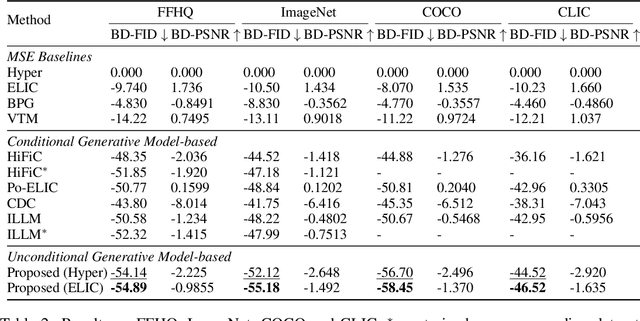
Abstract:Idempotence is the stability of image codec to re-compression. At the first glance, it is unrelated to perceptual image compression. However, we find that theoretically: 1) Conditional generative model-based perceptual codec satisfies idempotence; 2) Unconditional generative model with idempotence constraint is equivalent to conditional generative codec. Based on this newfound equivalence, we propose a new paradigm of perceptual image codec by inverting unconditional generative model with idempotence constraints. Our codec is theoretically equivalent to conditional generative codec, and it does not require training new models. Instead, it only requires a pre-trained mean-square-error codec and unconditional generative model. Empirically, we show that our proposed approach outperforms state-of-the-art methods such as HiFiC and ILLM, in terms of Fr\'echet Inception Distance (FID). The source code is provided in https://github.com/tongdaxu/Idempotence-and-Perceptual-Image-Compression.
Unified learning-based lossy and lossless JPEG recompression
Dec 05, 2023
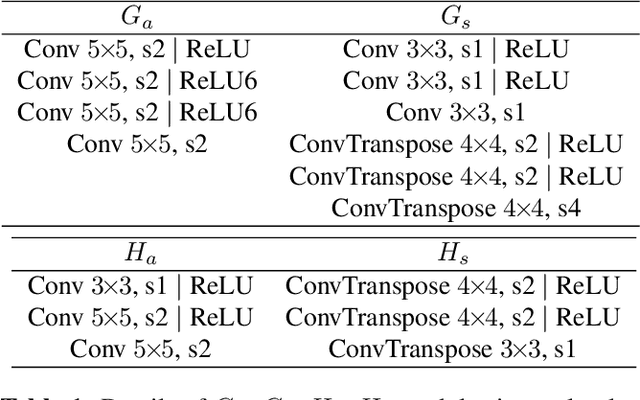
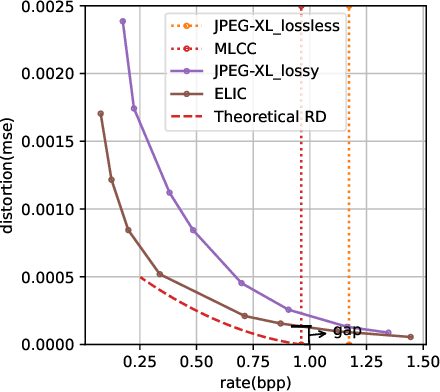
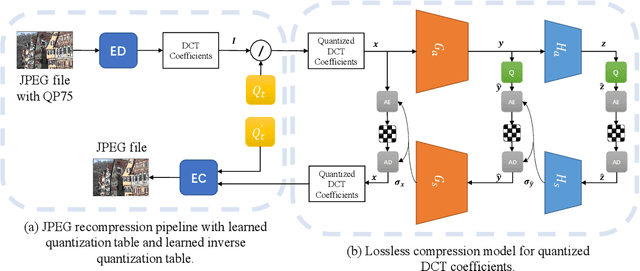
Abstract:JPEG is still the most widely used image compression algorithm. Most image compression algorithms only consider uncompressed original image, while ignoring a large number of already existing JPEG images. Recently, JPEG recompression approaches have been proposed to further reduce the size of JPEG files. However, those methods only consider JPEG lossless recompression, which is just a special case of the rate-distortion theorem. In this paper, we propose a unified lossly and lossless JPEG recompression framework, which consists of learned quantization table and Markovian hierarchical variational autoencoders. Experiments show that our method can achieve arbitrarily low distortion when the bitrate is close to the upper bound, namely the bitrate of the lossless compression model. To the best of our knowledge, this is the first learned method that bridges the gap between lossy and lossless recompression of JPEG images.
Efficient Learned Lossless JPEG Recompression
Aug 25, 2023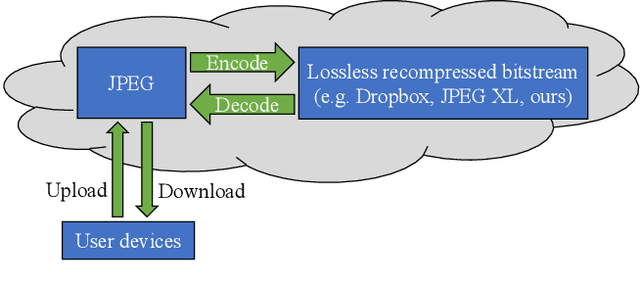
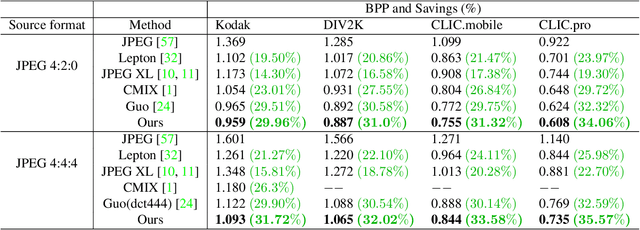
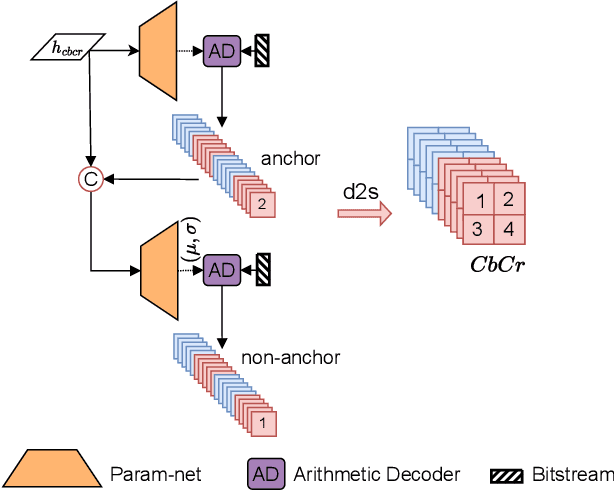

Abstract:JPEG is one of the most popular image compression methods. It is beneficial to compress those existing JPEG files without introducing additional distortion. In this paper, we propose a deep learning based method to further compress JPEG images losslessly. Specifically, we propose a Multi-Level Parallel Conditional Modeling (ML-PCM) architecture, which enables parallel decoding in different granularities. First, luma and chroma are processed independently to allow parallel coding. Second, we propose pipeline parallel context model (PPCM) and compressed checkerboard context model (CCCM) for the effective conditional modeling and efficient decoding within luma and chroma components. Our method has much lower latency while achieves better compression ratio compared with previous SOTA. After proper software optimization, we can obtain a good throughput of 57 FPS for 1080P images on NVIDIA T4 GPU. Furthermore, combined with quantization, our approach can also act as a lossy JPEG codec which has obvious advantage over SOTA lossy compression methods in high bit rate (bpp$>0.9$).
Practical Learned Lossless JPEG Recompression with Multi-Level Cross-Channel Entropy Model in the DCT Domain
Mar 30, 2022Abstract:JPEG is a popular image compression method widely used by individuals, data center, cloud storage and network filesystems. However, most recent progress on image compression mainly focuses on uncompressed images while ignoring trillions of already-existing JPEG images. To compress these JPEG images adequately and restore them back to JPEG format losslessly when needed, we propose a deep learning based JPEG recompression method that operates on DCT domain and propose a Multi-Level Cross-Channel Entropy Model to compress the most informative Y component. Experiments show that our method achieves state-of-the-art performance compared with traditional JPEG recompression methods including Lepton, JPEG XL and CMIX. To the best of our knowledge, this is the first learned compression method that losslessly transcodes JPEG images to more storage-saving bitstreams.
 Add to Chrome
Add to Chrome Add to Firefox
Add to Firefox Add to Edge
Add to Edge